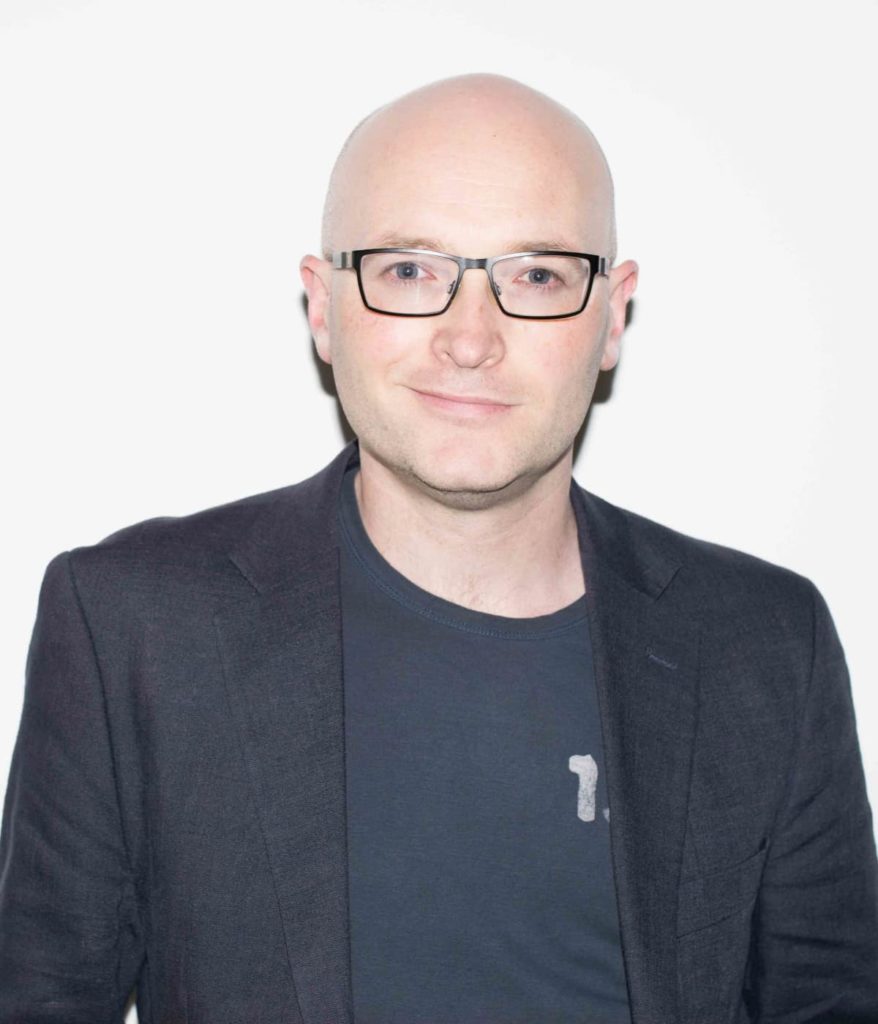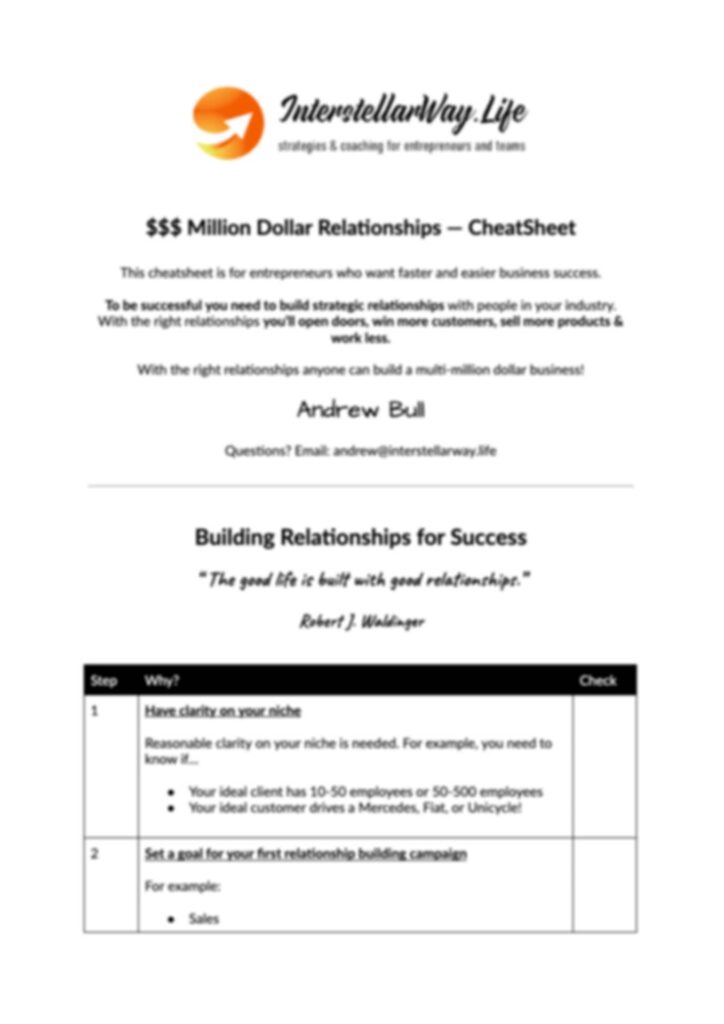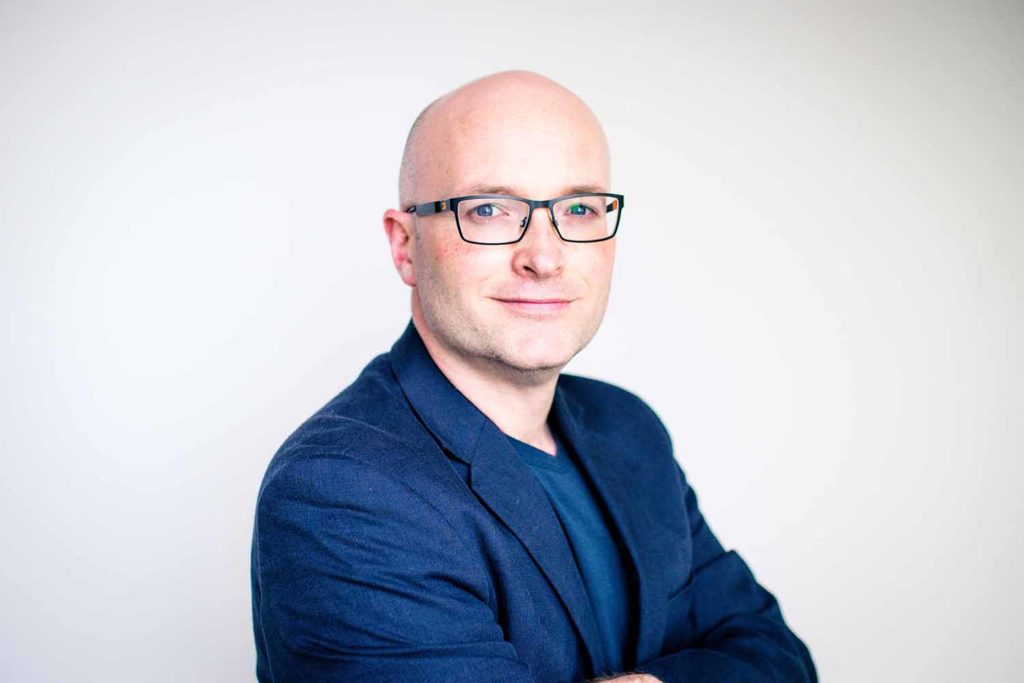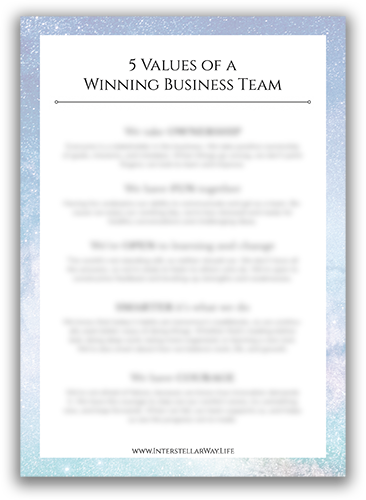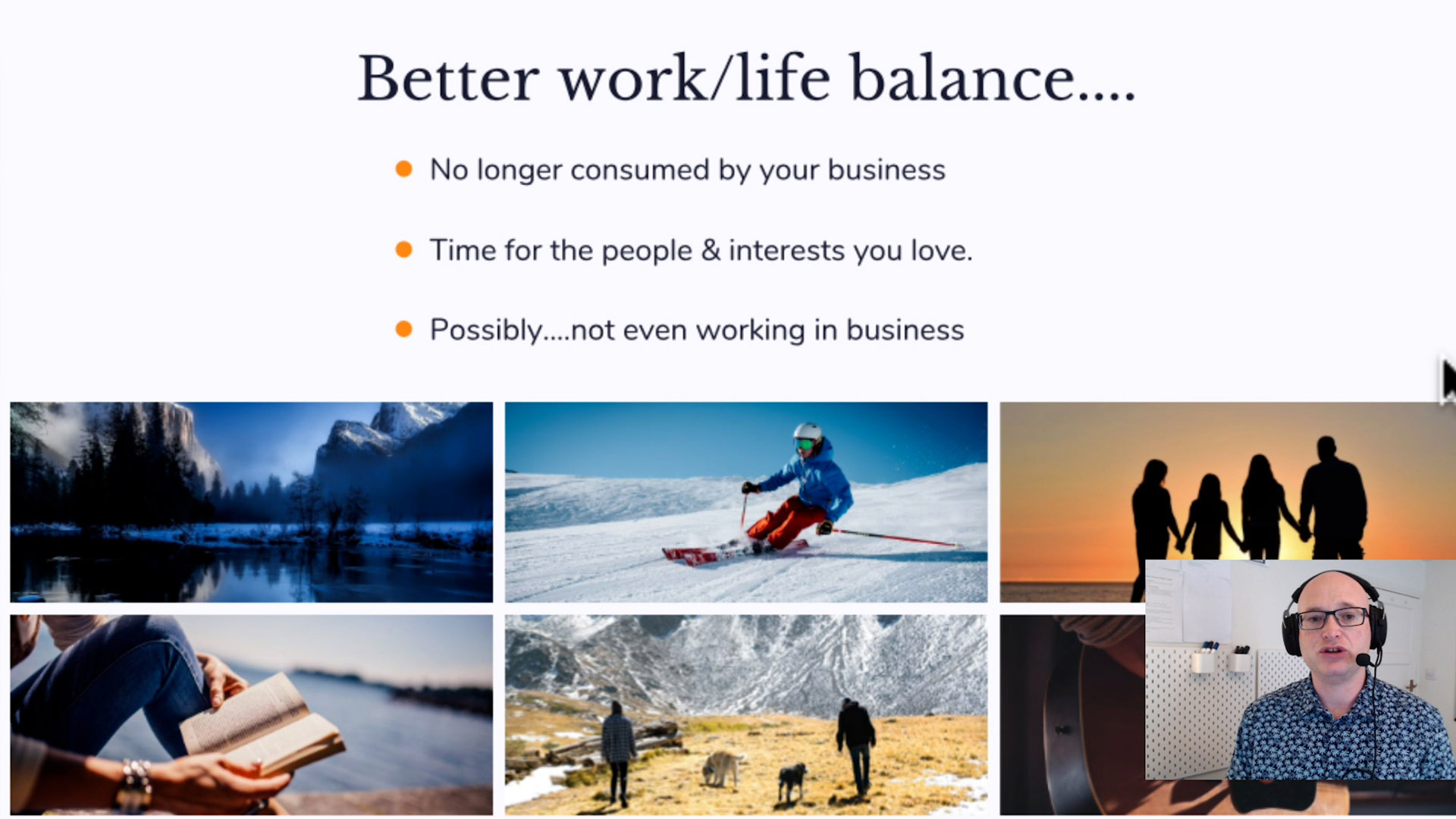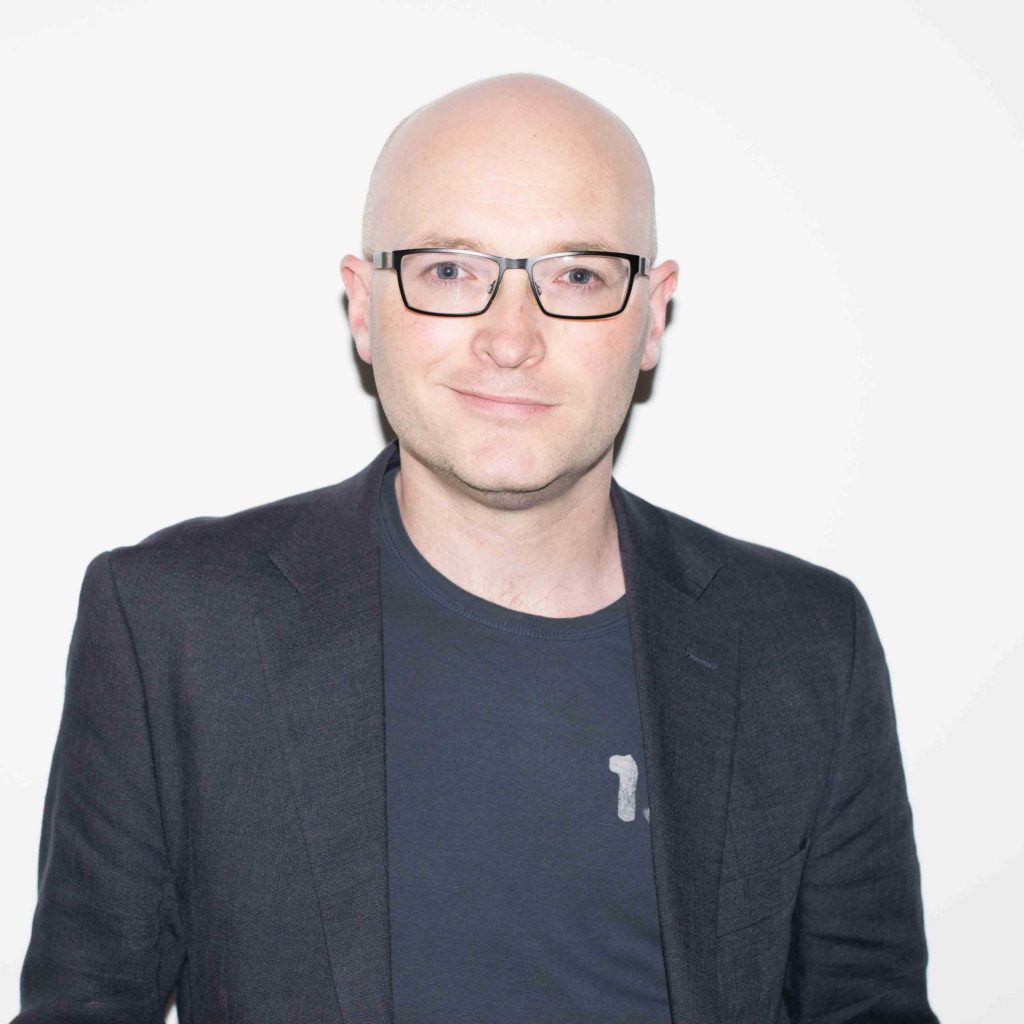Interstellar Business Show
Podcast for Technology CEOs and their teams.
It's time to grow your mind, elevate performance, and own your future 🚀
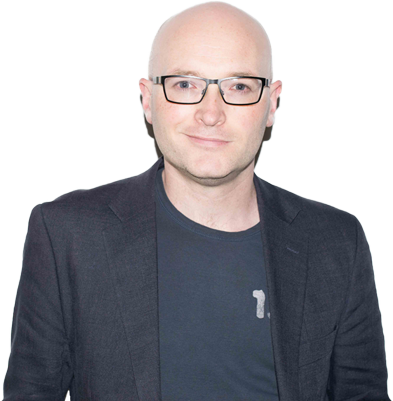
Interstellar Business Show
Episode: 0017
Talent Shortage & Biz Veterans: Rick Terrien on hiring older people for your tech business
Featuring....

Episode Introduction
PROBLEM #1
2 million people aged 55+ have left the work market since the pandemic. This age group been disproportionately affected by job cuts and redundancies, and are not finding it hard to get hired again. However, this group have a wealth of experience and knowledge.
PROBLEM #2
40% of leaders reporting that talent scarcity has negatively impacted their organisation!
Now, I bet you’re thinking…
“What if we brought these two problems together”
“What if we helped older people get jobs with tech companies who needed talent”
Great minds think alike!
We’ve created an episode especially focused on that idea.
In this episode Andrew is joined by Rick Terrien from the Center for Ageless Entrepreneurs.
The Center for Ageless Entrepreneurs empowers entrepreneurs in the second half of life.
The CAE aggregates new and experienced entrepreneurs to create new opportunities and to help market our collective capabilities as a network to worthy projects worldwide.
Episode notes & resources
Love this episode? Please leave a review here
Listen to more episodes here: Interstellar.Show
More about Rick Terrien…
Rick’s book site (Ageless Startup: Start a Business at Any Age – www.ageless-startup.com
Rick’s LinkedIn profile – https://www.linkedin.com/in/rickterrien/
Rick’s current startup – www.food21.org
Transcript
Please note, this transcription is autogenerated, so there may be errors.
Two million people. That’s the number of people who are aged over 55 who have left the job market since the pandemic. Now, this is a number that is out of proportion to the rest of the job market. People who aged 55 plus are not being re employed by companies and tech companies like yours Is this riot? Do these people not have value that they could be sharing with companies like yours? Today I’m going to be joined by Rick Terri Ann, who is going to be sharing his ideas about how tech companies like yours can make the use of this older, more experienced workforce to grow your company in a smarter, safer and better way. We’ll also be discussing networking, volunteering and a few other valuable topics. So stay tuned and don’t go anywhere. And if you haven’t already subscribe to the show, hit that subscribe and like, button wherever you are right now. So you never miss an episode ever again, right? Let’s meet Wreck. Okay, so I’m really pleased today to be joined by Rick Terri Ann, and I hope I’ve said your name correctly. Rick, have I got it right Yes, you do, Andrew. Okay, Brilliant. And Rick is an executive director of the Centre for Ageless Entrepreneurs. So just briefly tell me about that centre that it sounds interesting. We got to know we’re going to get into it in much more depth during the show. But if you can just encapsulate it for a nutshell right now, then we’ll move into it later. But there’s, uh, an ocean of talent. Hundreds of millions of years of human talent that are being pushed out the door, Uh, in these economies, in these old models of the economy, when in fact, people are living and working, uh, and contributing much later into their lives than they were before and the ability to help train folks into that mode and to take folks that are in that mode and guide them out into the world to help projects that are needed is, uh, the purpose of that we empower entrepreneurs in the second half of life. Fantastic. I love that. Yeah, we are going to get more into that, and I think this is really relevant topic, uh, for tech businesses and tech CEOs as well, because right now there is a big crush in the market. People can’t find talent to go into their companies. And there’s there seems to be a solution. So we definitely will go into this. Uh, we’re gonna move straight onto the first segment of the show, which is called Have Courage. In this part of the show, we ask our guests to lead the way by revealing a secret or fact about themselves. So, Rick, what is your secret? Mhm. So when my wife and I got married decades ago, she controlled most of the events and the decision making, of course, but somehow had left the band, the wedding band, the music to me and her brother. And we picked a bluegrass band that we really loved. But it didn’t exactly match up to my wife standards when they were taking pictures and the lead singer took off his shirt with a big emblazoned, uh, logo on the front that said disco sucks. And so, needless to say, that guy has not been in our any of our wedding pictures. But, uh, it was a memorable moment. Thanks for sharing that. Yeah, that but that that must That must have been I can imagine you had a disco. I take it at your wedding as well. We did not. And this was all out. Bluegrass band, old school bluegrass. And we’re just wonderful. They hated disco. I hated disco. I didn’t mind at all, but my wife wasn’t too crazy about the T shirt. It showed up a little prominently with everybody else all dressed up. Oh, I said yes. And the big the big problem here was everyone was in their smart attire and someone was in this quite a lounge E T shirt. Okay, I’ll get it. I’m still reminded of it of decades later. I bet you are all right. Let’s move on to our first business related segment for the show. Growing smarter in this part of the show, our guest share big ideas and fresh perspectives that will help you grow your mind and your business. So what’s the big idea that you’ve got to share with us today, Rick? So I would like to share the idea that there is an enormous talent pool that’s in the second half of life that have built companies that have built industries that have built markets that no the networks they know the comings and goings of industries, and yet they’re overlooked as a source of talent. These are people in the second half of life, maybe 40 45. 50. 55. Um, they have decades of contributions ahead of them, but they’re just never looked at as a source of entrepreneurship and innovation. Um, when in fact, that that market is on fire. There is a tremendous number of people in that group who want to continue to, but they don’t necessarily want to come into an office and work 40 50 60 hours a week anymore. They want to work on their own time. They want to work on their own schedule. They want to work on projects of their choosing that are important to their life and their legacy. And so entrepreneurship is almost a perfect place to settle for them. They get to choose who they partner with, partners can come in and look over certain kinds of talent in this group that we’re forming. This is a non profit centre for ageless entrepreneurs. What I anticipate, Andrew is that folks will meet and greet one another and start to put together pick up teams like a basketball pickup game. As projects appear as needs appear worldwide, people can come in and put together a team that has a chief technical officer. Maybe have somebody who knows is a subject matter expert in landscaping. I don’t know. There’s going to be a whole different mix of these for every project that comes through. But having a basis and common documents to share and have them meet one another is the goal of that organisation and then train incoming people that are interested in entrepreneurship but don’t know enough about it. And it’s It’s gotten a patina of, uh, something that only brilliant young people can do and that are given, you know, the word from on high, they get carved tablets in stone from a mountaintop on how to start companies. It doesn’t work like that. It’s a collaborative effort that puts that people need to work together. So we’re just adding this is a new group. Okay, so so the if I can boil it down, which is a horrible, reductive thing to do. What we’re talking about is that there’s a huge wealth of talent out there, which the market really isn’t tapping into now in terms of experience and ability. I think there’s a lot to be said for experience because personally, I’m aged 43 now, which isn’t that old, but it’s not that young anymore. And I’m only just really starting to get my stuff together now. So and I think that’s probably true for quite a lot of people that it takes a while to actually become this wise person or start moving in that direction. So if we’re already looking at moving people out of the market because they’re older, well, you’re starting to move people out of the market. You actually have huge amounts of value to offer because they’ve already learned a lot of lessons and they’re a bit more measured and rational. That may be maybe some younger people. So, yeah, I can I can hear, hear totally how powerful this this idea can be, uh, something that really stood out for me. There is. You’re talking about the needs of older people in terms of the like how the work is structured so that they don’t necessarily want to be working 14 hour days in an office is so. Is that something that needs to be better that we need to bear in mind. Well, without a doubt. And I mean, that’s the greatest joy of entrepreneurship at any age as you control your own time. Uh, time in this early 21st century is as valuable as money in many cases, how you use and how you spend it, um so control over that is vital. And teaching folks how to approach that mindset and how to use that kind of mindset is, uh, among the key things that we need to do in the Centre for Angels entrepreneurs. How can people actually get started with these ageless entrepreneurs or these ageless business experts they want to bring into their business? I’m sure there’s lots of tech CEOs right now who are listening to this and going. This is great, But how can I actually reach these people and bring them into my business? Well, right. And part of that is my job is to organise those folks and make them available through this nonprofit centre. But to answer your question directly, I’m going to use a quote that I just found its by Abby Miller Levy, who started a venture fund over here in the U. S. With Alan Patrick off both very famous venture folks from Wall Street with decades of experience. Um, and this from Abby Levy said. This isn’t just because it’s consistent with our brand or positioning. Go find an experienced professional who has been in the industry for 20 or 30 years of the industry. You’re starting your startup in Go Find a co founder who has that experience, that network, that understanding and, frankly, the relevancy to the end user that looks like them and go co design a business with someone who is in the target group you’re looking for. I think that would be one piece of ice advice we would be very passionate about. So it is to get a diverse set of leaders in early. Okay, so, yeah, you’re saying essentially part of the challenge that businesses have is that they’re very mano in terms of the perspectives coming to the business and by having older veterans in the business, you get more of a stereoscopic approach to ideas that are going to come in the business, and maybe you can find some shortcuts, for example, to doing things. Or maybe you can. You can avoid some hazards that you would you’d fall into by not having those voices in your business. Have we got that right? Yep, that’s exactly right. It is, and especially what you just said. It’s the stuff that doesn’t work. That’s historical knowledge. Nobody gets credit for screwing up, But when you’ve been in any kind of a workplace environment for, you know decades, there’s plenty of things that didn’t work. And that’s your intellectual property. And getting that in is to be valued. What doesn’t work is equally as important as what does work. And getting that from veteran workers experienced workers is, uh, that’s the best networking you can do for your business. That’s, uh, well, that’s I think that’s such valuable, uh, insight of, of, of getting that wealth of knowledge and and getting those people who are standing on a stack of experience stroke mistakes, because that’s really what a lot of experience comes down to is the hard knocks and the hard lessons. So if you can, you can get that into your business. That could be super powerful and and really help you grow faster and avoid those nasty hiccups along the way. Um, so, uh, in your notes before the show that you shared with me, you said most startups in the U. S. Are started by people aged 45 plus, which is quite interesting. Quite an interesting fact, because actually, I kind of thought that most startups would be started by younger people now. But maybe that’s just the media persona of seeing young, beautiful people. Uh, you know, heading startups. The reality is slightly different. Well, right. And there’s young, beautiful people on the covers of the magazines, and there’s yachts behind them and entrepreneurship. Just, you know, it can work like that. But it’s an infant intestinal fraction of the full story. Uh, so the full story is Yes. In the US, there are more. The majority of startups are started by people who are aged 45 older. They’ve got the experience. They’ve got to know how they build out their networks, their support networks. But the interesting part about that, too, is, um what they what they do with it and how they go forward with it. Since the pandemic, mhm all age groups, but especially those in the older generations, are pouring into this opportunity to do, uh, their own enterprise. But there it’s daunting because you go go back to What you started with is the pictures on the magazines and the yachts and the mountain climbing and all of that when in fact, in the United States before the pandemic, there was 32 million total businesses, and of those, 25 million of the 32 were one person businesses. It’s a significant story within the economy now. Granted, the smaller percentage of those are generating the big revenues. But it doesn’t discount how valuable those individual businesses are to those individual entrepreneurs. Um, so there is a big swath of people, and I think this celebrating this one and two person idea but also giving them a latticework so they can put their one and two person businesses in league and in combination and collaboration with others on demand for this pickup basketball game. Sort of a concept, um, gives them the best of both worlds. They get to run their own business and they get to work in teams and they get to go out to meet certain projects and problems out in the world, fall back in, Go back out. When the time comes, it’s It’s perfect. These one person businesses doesn’t mean it’s the only way. And I celebrate all of these. The ways do entrepreneurship. As long as it’s legal, it’s fine. I just don’t want people discounting these one and two person startups, especially with these wise workers founding them. Um, good Lord, what a talent pool. And what set of problems we have that need addressing right now? Yeah, and it’s true. I mean, we do. The people are saying there’s not enough talent around, but I guess if we open our eyes and shift our perspective, we might be able to find more talent, which is, I think maybe that’s what you’re saying. Is that what you’re saying, right? That’s exactly right. Yep. Okay, So how is your business helping CIOs take action with this idea that if people want to get older workers involved in their tech business, how can you help them? So we are building the centre for ageless entrepreneurs around that concept of making it a marketplace of talent and ideas, and we’re it’s a chicken and egg. We’re bringing in folks with the talent, but we’re also reaching out to the marketplace to say this talent pool exists, so we’re growing both at the same time. But that is specifically what the centre for ages entrepreneurs is intended to do is to create less friction, to take friction out of those conversations and that idea of of locating and finding and onboarding talent that is not traditional older. Um, that’s something that’s really needed in the marketplace. There’s a gaping hole right there, and so we’ve set up this non prophetess to serve that idea. It’s fantastic. And where can people go? Have you got a website where people can visit? It is, and it’s It’s evolving, like all of those things, but it’s it is ageless entrepreneurs dot org. Okay, cool. And we’ll put. We’ll put that link in the show notes as well. So wherever you’re listening, whether it’s Spotify, Google podcasts, apple podcasts or or on the interstellar way dot life website, you’ll be able to find Rick Flynn. Can I finally suggest you go and check that out? Right? Let’s move on to the next several other show working smarter in this part of the show, our guests will share insights about business and team performance, leadership, development and productivity hacks that you can action in your business. Mhm. So, Rick, what is the hack that you’ve got that will help corporate teams improve their performance? So I’ve learned over decades of entrepreneurship that the greatest ideas in the smartest ways to do things come from outside of my head. It comes from other people that I meet and I network with, and I’ve just been an avid network or my entire life. But I especially go after divers networking. I don’t want to talk just to people who look like me or my age or work in my industry or have my passions in life. Purpose is in life. I try to get all over the board and try to get specifically with young folks. Um, I have plenty of folks around me who are older right now, but working in different industries, working in different countries, working in different localities, working on different kinds of projects, stuff that I wouldn’t do myself or I hadn’t thought of, Um, I come out away from those with much more inspired to be better myself and to build better organisations around the ideas that I’m promoting, I I feel much stronger by making sure my networking is as diverse as I can make it. So your idea, then, is that all businesses, even big Corporates and larger tech businesses should keep networking. And also make sure that networking is diversified to get a wide range of perspectives and opinions that can help enrich what they’re doing. Is that right? Sure. And while it’s sort of a pipe dream as you get bigger with these corporations, why don’t you have networking events between the new hires and the sea level? People write. Normally, mere mortals can’t get to the sea level people. But in fact, as these organisations get bigger and more complex and frankly, you can bring in vendors for that matter, it’s all going to make your company better. But meeting and greeting and understanding the perspectives of the different people that are offering inputs to an organisation that you may be leading as a tech leader, uh, can only make your business stronger. And I would love to see that top to bottom intra corporation networking as well as out in the community and bringing in all those diverse voices I think that’s a fantastic idea. Rick and I really do like that idea of bringing all levels together in a company because you never know where the next great idea or insight is going to come from. And I think when it comes to creativity, which which is really when we’re talking about innovation and trying to find fresh ways of doing things in business. We’re talking about creativity. But sometimes we do run dry were creativity. Sometimes maybe we’ve just been too busy just getting the work done, and we don’t have those ideas inside ourselves. So actually, what better than to go to your network whether it’s internal or external and get those ideas from from those people? Really, I think that’s a fantastic idea. Well, it’s not just getting answers to the questions you’ve got, which is obviously very important. But it’s to hear about new problems. Maybe you and I won’t have that certain problem. But if we talk to a third party who comes into our networks, we’re going to see new problems arise, and new problems are opportunities. That’s what entrepreneurship is. They fix problems 100% for example, Tic tac. Now I’m starting to see how that could be an avenue for this this show to communicate more and to scale more to reach people. But I’m only discovering that through the people have networked with and had conversations about it, and it’s not it’s not a problem that I knew I had. But now, now I’m realising that there’s actually a like could be an amazing solution that could really help me And that’s just that just comes from being open to ideas from outside influences. So thanks for sharing that. And this networking is basically a free channels to do it. The the infrastructure for networking is just laying around all over the planet right now. So it is not as though you have to put some new, big, expensive infrastructure in place. You turn on the computer, Yeah, 100%. It’s so uh, free and easy to do it. You can jump. You can jump on linked in right now and start networking with people, right? I think sometimes people go about networking the wrong way, though, because and this is a mistake that I’ve made in the past, that you try and do it in like a a s a s or a Delta Force kind of way, Which is? You just want to go in, achieve your objective and run back out of the building again. Which is kind of a young man’s perspective or a young woman’s perspective on things, I think, where you just want to, you know, you’re too busy. You you’re too busy. Wanted to go and do other things. So you don’t think about building those relationships the proper way. So how can people go about building those relationships the proper way? Rick? Uh, so that’s right in my wheelhouse. I’m ultimately a salesperson. Uh, you know, nothing happens until somebody sells something. And networking is another form of calm form of networking of sales. But what I’ve learned over time is the best sales people you’ll ever meet are the ones who say the fewest number of words, they’re the quietest, they’re the best listeners. And that’s a skill set you can practise when you’re networking. Um, when I get online with somebody and I try to make them as random as possible, um, I need to shut up. I need to find out what that person is about and who that person is. The conversations that follow them are far more valuable than if I just blustered in and say, Oh, I got this. I got to run a book, a big deal. Who cares? I know all that stuff. I want to know what I don’t know. And I can only do that by shutting up. Yeah, there’s a huge value in, uh, just being quiet for a while. Ad listing and really listening, which is a something I’ve realised is where, over the last couple of years, that yeah, taking the time and removing yourself a little bit from what’s going on and not focusing on how you’re going to get value or relating everything back to you can become a really powerful tool for actually building a bridge to the other person and really building a deep connection with them rather than doing what a lot of people do, which is pretend to be having a conversation with people but are actually just wanting to, I don’t know, entertain themselves somehow, but not actually connect. And here, that of a person, is this making sense? Rick. It’s making great sense, and the value that comes from these conversations comes from the other person. It doesn’t come from you bringing your ideas. You already know what those are. Um, shut up and listen. Uh, that’s where the It makes you a stronger person and makes the company’s You’re in the project. You’re working on better by listening to as many diverse perspectives as you can. And it’s just fun. It’s better. Human beings are wonderful when you let them go. And I think human beings are amazing. People like you say, Rick and I just think shut up and listen is such a brilliant piece of advice that we can all take on board and should all take on board because we’re so busy dashing around all the time that we get used to that mindset of not actually investing our attention on people and just listening. So, yeah, I think that’s that’s a great advice for people listening to the show. Just try and shut up and listen a bit more to get to really connect with people and discover that value that they have to to offer. Let’s move on to our next topic, which is called living Smarter on this part of the show, our guest shares how they’re trying to balance business growth. They’re working day and personal life for them and their team. What idea about living smarter if you got to share with the audience today, Rick. So I think the one that I’ve learned the deepest in my life and it’s actually playing out now is we’ve all considered that we would live our lives and these chunks and would be starting a career and running a career and then retiring. And then when we retire, we can do all the good stuff that we want to do and make the contributions to our communities and all of that, Um, but you can’t get to that until you’ve churned through all the commerce that’s required of. You seem to be required of us as we grow older. But in fact, now we’re going to be growing older a lot more years where people are living to 100 100 plus people are going to be working well past 65 60 working into their seventies, working into their eighties. So the my idea, um, it’s just one that’s worked for me is don’t wait until retirement to start making those community contributions and those things you want to have in your legacy and you want to have in your life. And you want to have shown your Children that are important to you. So I started weaving in my community service long ago. Well, when I was starting brand new companies in my twenties and thirties and forties, um, I would take my kids and we would work at the meal programmes. We would work at the homeless shelters. We would contribute to our churches. We join the library fundraisers. We would do those kind of community based special events, and if it happened during work hours, it didn’t matter. I could fill in and work that night a little later, but I made sure that I got the things that were really important in my life into my life. I didn’t say I’ll put him office as, um, as soon as I get to a certain golden age and somebody gives me a watch and pushes me out the door, you need to build those things in early because you’re gonna be working longer. And so you might as well build that work life balance and those kind of contributions, commerce contributions, community contributions. Learn to mix them together. Stir those together early on. You’ll have a better life, and your business is I’m going to posit will be better for it for having a deeper, richer perspective and yeah, for be for for maybe for because you’ll be stepping back. Is that why? Because you’ll you’ll be stepping back and having more perspective on your business? Um, I think it informs all businesses are just like human beings. They live in an environment, they live in a society. And, um, for any business, any project, any organisation to be strong, they need to be working on strengthening the societies they live in at the same time, not just be extractive in their business models and in their personal models for how they’re contributing to both kinds and community. So, um, yeah, I think it makes a lot of sense to build in and gain those understandings because I think about community and society and making the world a better place. I think you make your own companies better for that. Anything that perspective, you’re smarter, more knowledgeable, more complete human being that has a better judgement. Judgments for their own corporations as leaders. Are there any particular instances that you found from where you spend your time doing these community works, that you could relate back to changes that you made in your businesses, or like ideas that you took from doing that to transferred across? Well, I’ll use one example was a meal programme that I worked at for a couple of decades. It was the inlet door guy. I was also the church leader that would bring my community church in to serve on a given night. We had a model back there, and this was in Wisconsin, where I raised my kids. Um, where instead of a typical soup kitchen model where the needy folks would come and come to the counter and get their offering and come back to their chair, we did it differently. We had people from our church and our community interspersed with all of those people from that were in need that needed those meals, and they sat together and they ate together at tables of eight or nine or whatever. Those were, uh, and the conversations that developed from people who would, you know, they want to help people who might be living on the street or might need a meal. But there was a concept. Now they’re sitting next to somebody talking about other car broke down and they had, you know, needed a lung transplant or whatever it was. I mean, there’s just a whole host of these things, but humanising the other, uh, and finding out the stories that make us all human and the distances between us are very small, given a couple of breaks. Uh, so so meeting and greeting not just on a cognitive level, but, uh, please pass the bread level. Uh, was life changing for me? I always look back on it when I think about the contributions that I can make and who’s out there and who needs help. Yeah, that must have been a very powerful and maybe humbling experience to go through that and give you some a different perspective on your life and what you’re trying to achieve on your own challenges. Maybe. And if you, as a CEO, maybe had issues with rationalising your behaviour and decisions, sometimes maybe being in that context for a while, maybe it might help you make better decisions in your business because you just start seeing the bigger picture and what really matters a bit more correct and anything that can expand your vision and can expand your perspective certainly has a benefit to any kind of enterprise that you’re running fantastic. I think that’s such a great story. An idea. Thanks for sharing that with us, Rick. Let’s move on to our next topic, which is called Own your Future. In this part of the show, our guest shares their big vision for the future and the steps that they are going to take to get there. Sir Rick, what is your big vision? So it goes back to empowering entrepreneurs in the second half of life. This is a subject area that needs a lot of attention, needs a lot of help. It needs a lot of support. Um, and so I am working day and night now to put that into practise. Um, they’re not. Everybody wants to do this. This isn’t, you know, Grandma’s got to go driving uber, uh, we we get to choose this. So in the United States, um, and and the trends seem to match up globally is there’s about 100 million people in the United States between 45 70. Um, not all of them want to start their own businesses. Someone want to go gardening and play with the grandkids and all of that, and that’s fine. But there was 25% of that market 100 million, and that seems to transfer over to global markets as well. About a quarter of this segment of this demographic really wants to stay in the game. They really want to continue to contribute, and, uh, in the U. S. That’s 25 million people. That’s 10 years of job growth in a normal economy. Um, it’s a big number, and it’s, uh, um, overwhelmingly positive, and that those people are self selecting to make a contribution. They have decades of knowledge networks and know how to put to work. We just need to find them human infrastructure to start linking them up to each other and to the greater commerce that’s out in the world. That needs those kind of skill sets and also to train new folks coming into the subject. Okay, and that’s a really bold and engage in vision that you’ve scoped out there and I think it could be huge. I mean, that’s like a big social vision. Not really. Just a big uh huh business vision, and that could have a huge amount of positive consequences what the steps are going to be taking towards achieving that vision because it is so grand. I suppose you need that vision, right to have clarity of where you’re going, first of all, and I suppose that helps you break things down. But do you have, like, smaller, Like a smaller, like three year vision? I suppose, as or or is this something that you think you can achieving quite quick time scale? Well, I’ve learned that over time that nothing really happens in a in a short amount of time. It’s just everything takes longer than you want. And I’m, uh, exhibiting it’s just it. It’s the old adage of when is the best time to plant a tree. You know, the best time to plant a tree is 20 years ago. The next best time is today, so we need to get it going. Um, and I am taking those action steps I put together this this nonprofit I’ve got excellent board of directors that are on the website will be starting regular meetings for those that are entrepreneurs in that age group to start the meet and greet. We’ll be starting that. In this last quarter, we’ll be starting zoom or online trainings using those ageless entrepreneurs to help do Q and A one on one mentoring people up into this model. Um, it doesn’t take a lot, but it takes a little You know, you want to get an entity wrapped around yourself. You want to get all the banking, insurance and all of that so that your peers can see you as a professional. But it’s it’s nothing tricky everybody. Anybody can do it. But putting those steps in place and starting to populate both sides not just those in the organisation, but to welcome the CEO and the tech leaders and, um, any kind of leaders around the world to know that this talent pool is here and to begin engaging it. There’s problems in, you know, Albuquerque and Akron and Oman and Singapore and you know Beijing all over theirs. Older, wiser human beings that are willing to take on specific projects that they know have a subject matter expertise in. They just may need peers to join them and support it, or the opportunity to learn about it or connect to those projects. So in the world, there’s 100 million in the U. S. There’s something like 3. 5 billion billion people in that market worldwide. Uh, it’s it’s a big number and I want to tackle it. And I suppose one misconception that people might have is that older people aren’t very good with technology, right? The older person won’t be able to programme in python or be able to put an app together. What have you got to say to counter that? I don’t want to counter it. I I think that that’s often the case. I don’t want to learn Python. Um, but I want to tell that 20 something ish person You’re a really great python programmer. I know how to talk to people about that. I know how to people tell people about what you’ve done. Uh, I know how to find distributors for that product. I know how to help you price that product. I know people who can introduce you to your and your python product to the 40 biggest retailers in, uh, South America. You know, there’s a There’s a million ways we can all make contributions. It’s not one or the other. Um, and there are plenty. I’ve got plenty of people who are coming in. They had an older guys retired professor wants to start an AI company right now. And I was like, All right, come on in. Um, why not? I I think you You put your focus on. Yeah, it’s technology. There is going to be divides not just technology, but and all kinds of things across age groups. But that’s more of a reason to bring us together. Yeah, I agree. Smarter organisations. Yeah, Yeah. You compound the ideas and diversity into something bigger than it would be if it was all separate. Correct? Okay, there’s also I just want to bring up one last idea about this is these CEOs, especially folks running larger companies. Uh, we give people watches at the you know, they get to 65 or whatever the magic number is to retire, and we boot him out the door, and they’ve got non competes, and they can’t really help the marketplace that they loved and grew up in. I mean, that’s just dumb. It’s a complete total waste of talent, the idea that we’re promoting and nurturing and we’re just releasing a paper on this is the idea of phased retirement for older workers. So instead of a non compete, you give them a please complete compete. Right? Uh, let them stay connected to the mother ship, but go out and start their own small organisations and within some subset of what that corporation knew about and that person or those one or two people on their own are going to find new opportunities, new information, new data that the mother ship, this big behemoth would have never got their hands on and hear their reporting it back for a fraction of what their salary used to be. There are ways to beat that system and to be negative with it. But there’s also a good way to keep older workers connected to the industries and those corporations by just easing the restrictions and the work. Uh, connect connectivity between the corporation and the employee, turn them into entrepreneurs. Let them lose. Yeah, No, I love it. Set them free. Free. I love it. It’s So it’s such a beautiful idea, and why not? Um, so let’s move towards the final segment of the show. Take action. In this final part of the show, our guest shares the steps that you can take to get the big idea that they’ve shared with us today. What’s the big result that tech leaders can get if they action your big idea? Mhm. They can get better companies out of this. They can get stronger companies, they can get smarter companies, they can get more resilient companies. And they can get companies that are more flexible going into the future by having a connection to what’s happened in the past. And what are the steps that they can take that help them make this happen? There are steps they can take by themselves or steps they can take with you. So just what we were talking about. If they’ve got their own employees trying to hang on to them, work, work around, you know you only have to go through traditional retirements. You can start to build these phase or flexible retirement programmes. Um, that’s to keep the talent you have. The other one is to start reaching out to talent that’s available to you in the communities. And I’m going to suggest and have been suggesting that a big talent pool is in this ageless group, this ageless entrepreneurs. And let’s read out the website one more time so people can get that. In fact, I can read out for people so you can go to ageless entrepreneurs dot org. And that’s where you can connect with Rick and learn more about what he’s doing and that those that probably could be a great first step for getting in touch and learning what you need to do, right? Right? There’s all kinds of ways just to leave your name, doesn’t cost anything, doesn’t commit you to anything. But we would love to expand the conversation, especially in these early stages, and people can put their mark on this organisation as well. Well, thanks for coming on the show today, Rick. Really appreciate having your valuable insights and for you spending the time with us today. I hope you enjoyed it. I’ve had a great time, and I really I’m looking forward to helping change the culture around the world with this idea. Okay, Thanks, Rick. See said Okay, So in this final part of the show, I reflect on what our guest has shared with us today, and I pick out key ideas and thoughts that you need to take away. So what I learned from Rick today was how much value older people can offer companies. And, sure, the majority of them may not be so willing to dabble with Python or some other things like that. But they have so much value to offer in other aspects of your business in sales and networking and partnerships and so on. And I think it would be wise of us all to become more open and receptive to how these older, ageless entrepreneurs, as Rick calls them, can start adding value to our enterprises. Because if we don’t, we’re going to be missing out on a competitive edge and advantage that our rivals will be grasping. So my challenge for you and my, uh, proposal to you is this. Think about how your business can reach out and start working with just one business veteran in the next 12 months. How can you bring someone into your business and help them add value to your business? While also giving them a worthwhile job and adding value back to them. Now, if you haven’t already subscribe to the show, please hit that subscribe button. Now, I look forward to seeing you in the next episode. Thanks for being here. Have courage, own your future and take action. Mhm.

